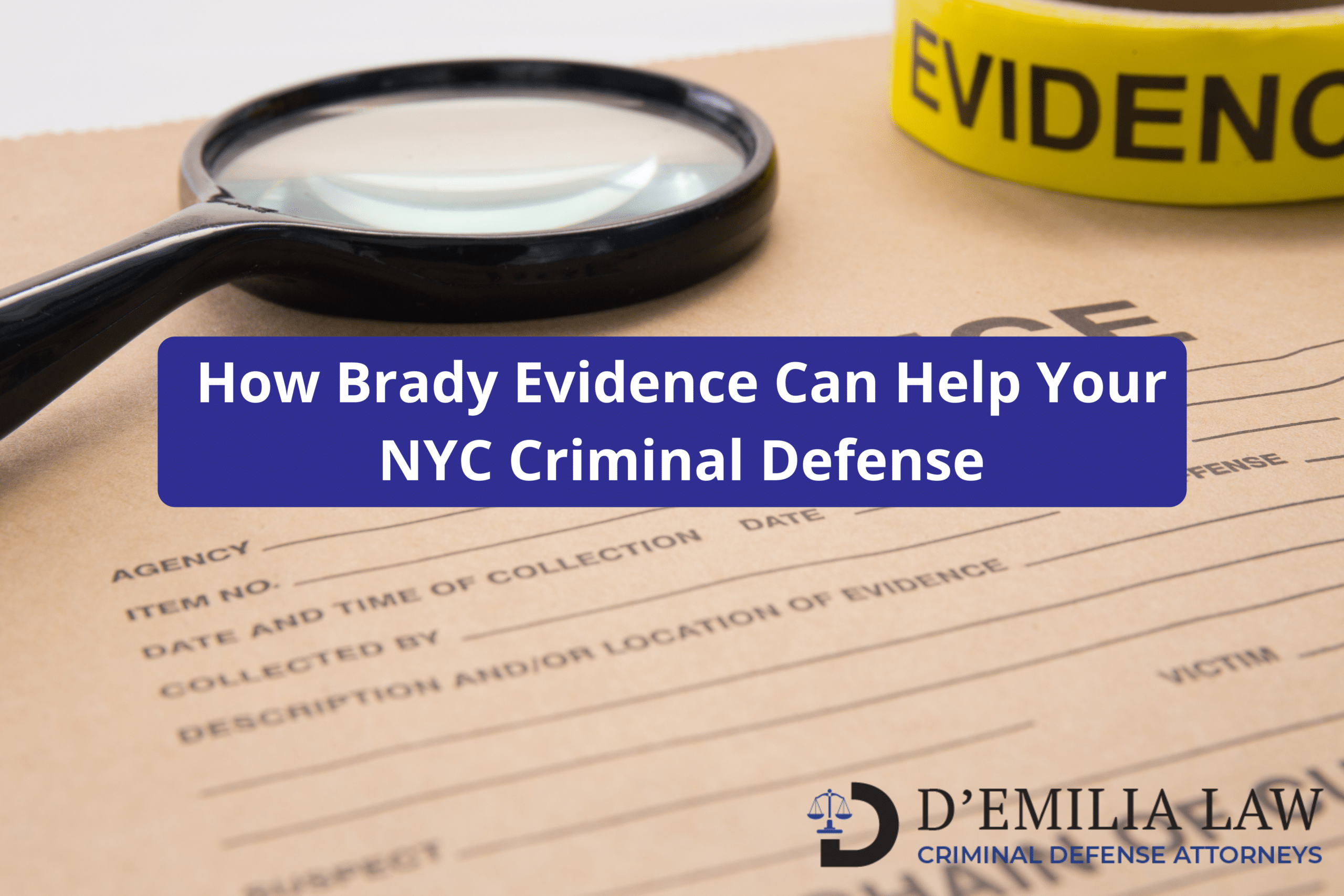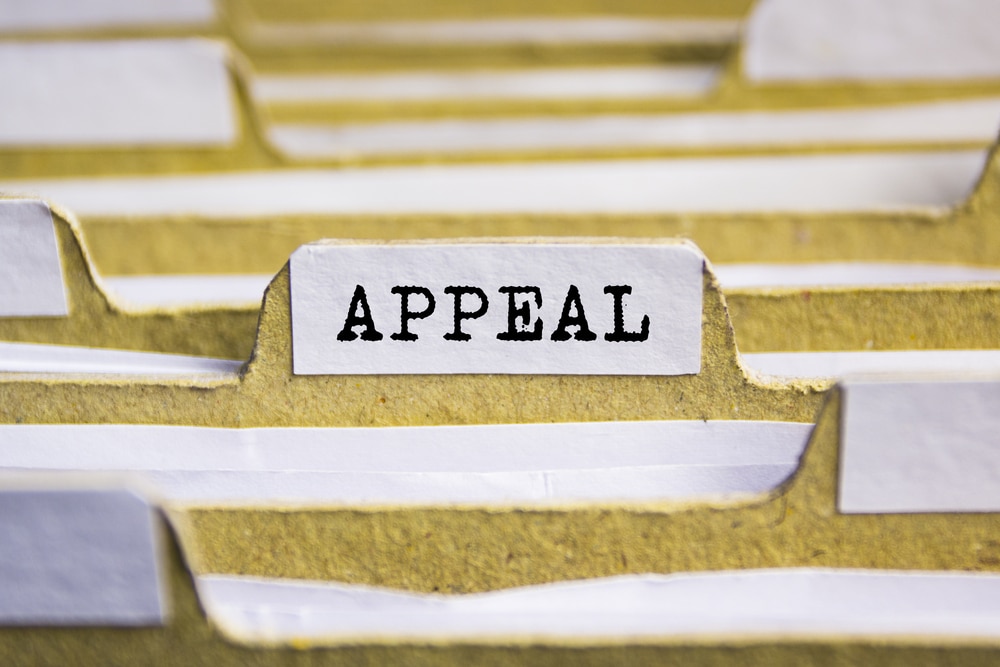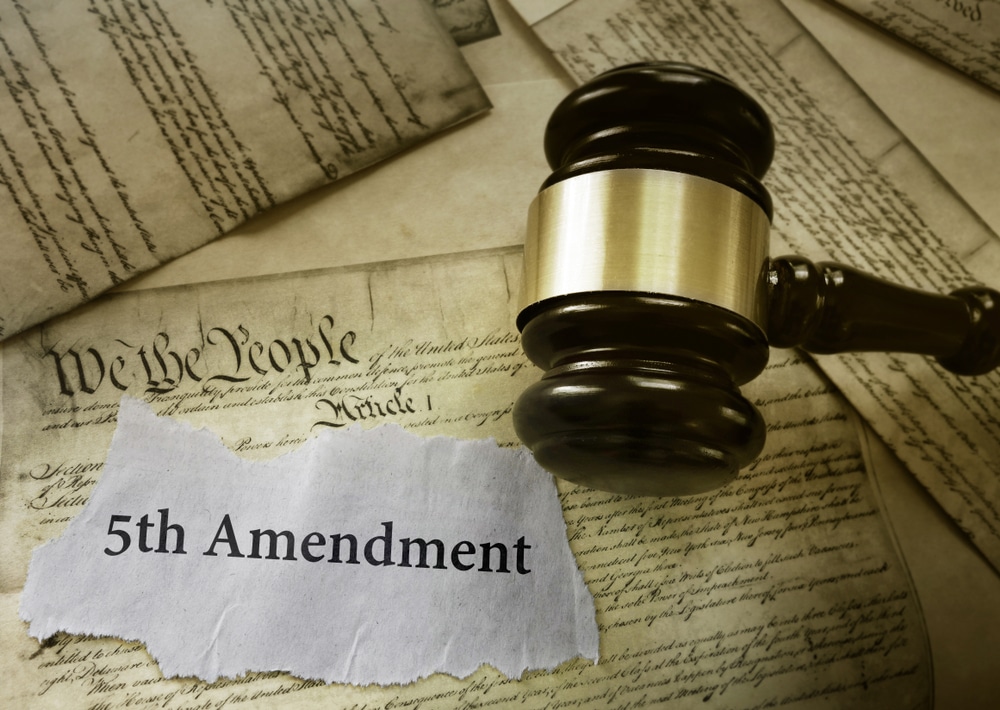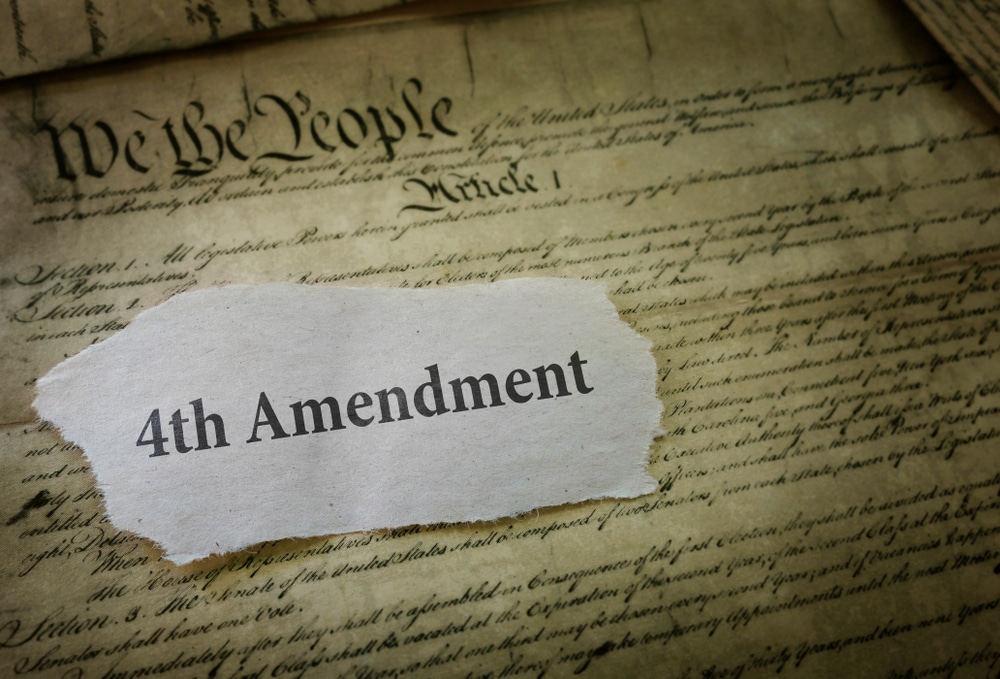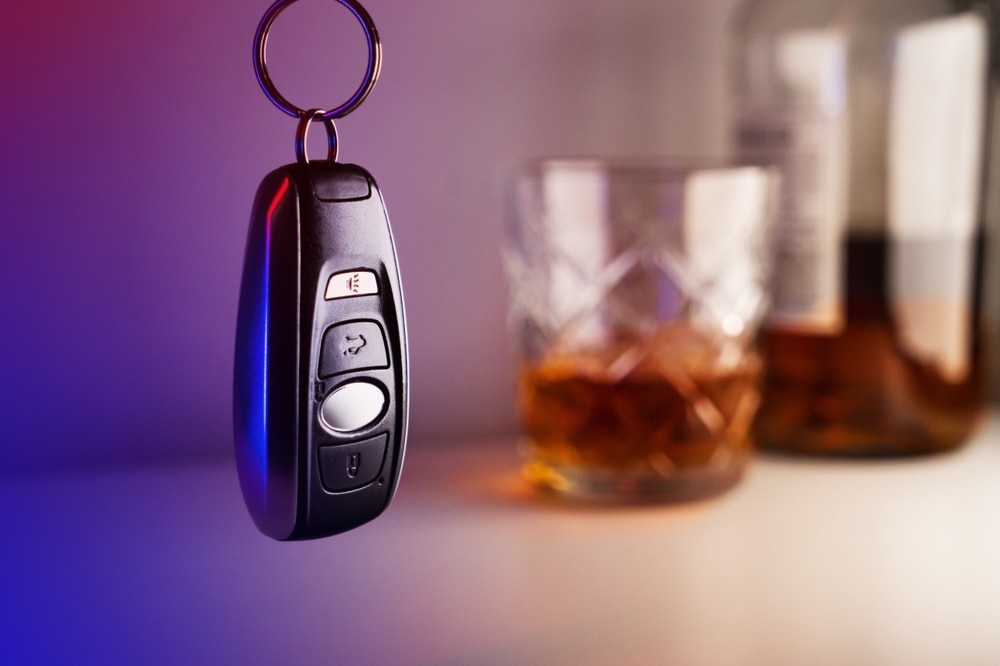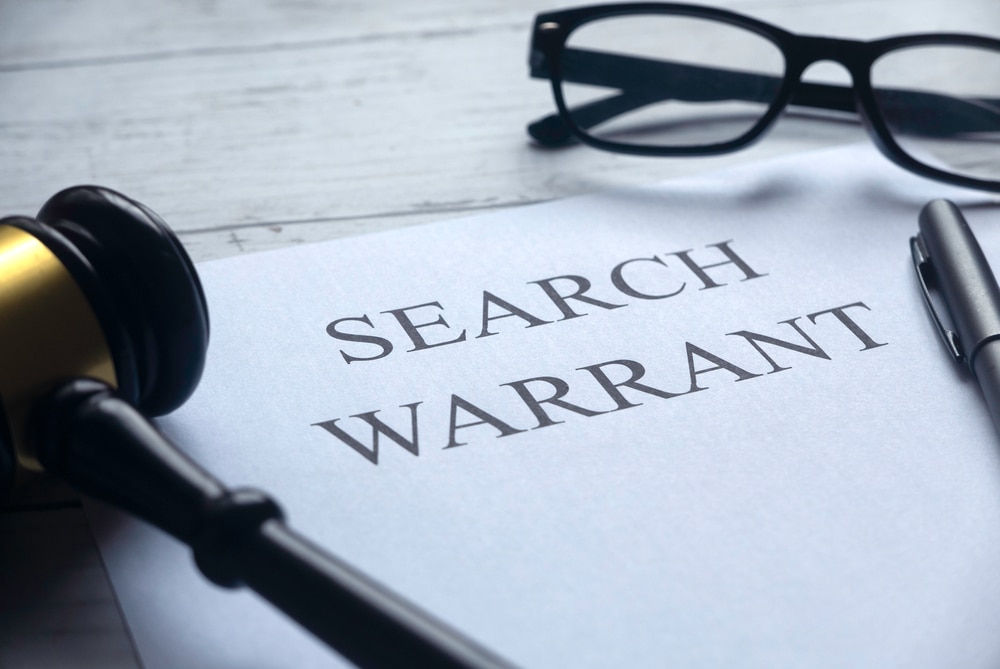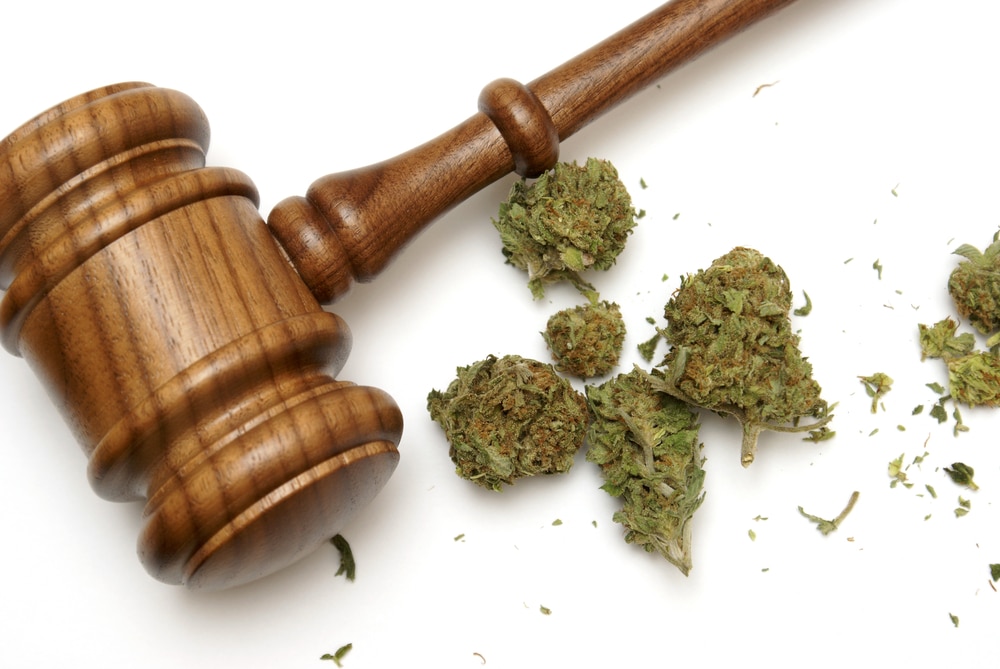D’Emilia Law recently secured a favorable criminal defense result in NYC for a client who was arrested for drug charges after he was initially pulled over for a traffic violation. When police searched his car, they allegedly recovered cocaine and he was charged with possession and intent to sell.
As detailed in the case study, the client was referred to D’Emilia Law. We were initially skeptical of the circumstances of the arrest – particularly with regard to the timing. During the pre-trial discovery period, we asked the prosecution to do its due diligence and investigate the timing of the arrest, among other details. The District Attorney’s office returned with documented proof that the search warrant the officers served expired 24 hours prior to the stop and arrest. With this new information and evidence, we negotiated with the D.A. and secured a drastically reduced charge for our client.
Many of our readers have asked: “Why was the D.A. required to turn over that evidence?”
The answer is because of a federal rule known as Brady disclosure. This rule dates back to the 1960s and governs criminal law procedure. We will discuss the law and its impact on NYC criminal defense lawyers today.
History
The U.S. Supreme Court heard John L. Brady v. State of Maryland in 1963. It was a case about two men who were separately tried and convicted of murdering an acquaintance. One of the convicts, Donald Boblit, had confessed in writing that he had committed the murder by himself; the other co-defendant, John L. Brady had maintained he had not committed the act. When the appellate court would not grant a retrial based on that evidence, Brady appealed to the U.S. Supreme Court.
The Supreme Court ruled that the prosecution cannot suppress evidence that is favorable to a defendant who has requested it. Exculpatory evidence that would serve to reduce the defendant’s sentence must also be disclosed by the prosecution. Failing to turn over that information would violate due process, which is outlined in the U.S. Constitution.
How Brady Evidence Impacts Your NYC Criminal Defense
The responsibilities of prosecutors and defense attorneys are regulated by law and in New York State, it is a requirement for the D.A. to turn over Brady evidence. But no system is perfect and prosecutors have acted egregiously when it comes to Brady material, which has correlated with many wrongful convictions. The National Registry of Exonerations reported that at least 88 of the 234 exonerations in New York State involved withholding Brady material.
In 2018, the New York Court System took measures to curb that rate by instituting a directive for judges to remind prosecutors in every criminal case to disclose Brady material. This provided a mechanism by which to educate inexperienced prosecutors and defense attorneys − and remind experienced ones − about their constitutional and ethical duties. D’Emilia Law is comprised of former NYC prosecutors. No matter how strongly we built our cases against accused parties, it was our ethical duty and legal obligation to turn over Brady material.
A qualified NYC criminal defense lawyer will request certain documents and evidence that may exonerate or help a client. Requesting the evidence is an early step toward a strong defense, but it will not guarantee a dismissal or reduced charges. But as previously discussed, if evidence is not turned over in a timely fashion, the defense can move for a trial by invoking New York’s Speedy Trial provision, Section 30.30 of New York Criminal Procedure Law.
Recalling the favorable resolution we achieved for our client, the Brady evidence certainly strengthened our position during pre-trial stages. By agreeing to the reduced charges, we avoided a trial and any chance of our client serving a lengthy prison sentence.
Contact an NYC Criminal Defense Lawyer
D’Emilia Law maintains that an arrest is not the end of your life. It is not the same as a conviction. A strong and strategic defense can uphold your innocence, keep you out of jail and reduce your charges and fines. Further, honoring the conditions of your bail or bond will demonstrate your willingness to cooperate with the judicial system.
For more information visit D’Emilia Law’s Drug Crimes practice area page.

